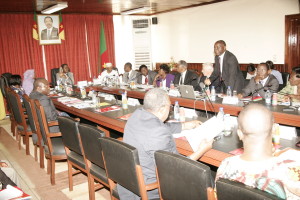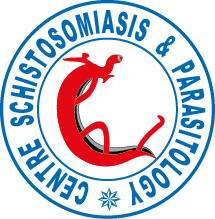About Us
Background 
Cameroon which has an estimated population of 22 million, is located in Central Africa and borders Nigeria, Chad, Central African Republic, Gabon, Republic of Congo and Equatorial Guinea. It is divided into 10 regions with 189 health districts, which form the implementation unit for all health activities in the country.
Neglected tropical diseases such as lymphatic filariasis (LF), schistosomiasis, trachoma, onchocerciasis, and soil-transmitted helminthiasis (STH) continue to be endemic in Cameroon with 21.4 million people being at risk of infection. They typically affect the larger proportion of the country which live in rural areas and usually tend to be poor and lack access to a clean source water, basic health services and essential medicines. These disease have always posed a problem for the Cameroonian people as they not only cause a health burden but also a social and economic burden as adults who are affected account for a loss in economic productivity.
The control of NTDs represents a major challenge to those providing health care services in the endemic countries such as is the case in Cameroon. In addition,the fight for the control of NTDs has been overshadowed by other health challenges such as HIV/AIDS and Malaria which has resulted in them being called the silent plague. However, in recent years the Cameroonian government has gone on the offensive and has put in more effort in trying to eliminate these diseases by 2020.
 The National Program for the Control of Schistosomiasis and Intestinal Helminthiasis is one of the priority programmes of the Ministry of Public Health, that provides leadership on all activities aimed at combatting schistosomiasis and STH in all regions of Cameroon. Created in 2003 and offically launched in 2004, the program has been successful in influencing health policies around the control of schistosomiasis and STH in Cameroon.
The National Program for the Control of Schistosomiasis and Intestinal Helminthiasis is one of the priority programmes of the Ministry of Public Health, that provides leadership on all activities aimed at combatting schistosomiasis and STH in all regions of Cameroon. Created in 2003 and offically launched in 2004, the program has been successful in influencing health policies around the control of schistosomiasis and STH in Cameroon.
Our Vision
We envision a Cameroon free from Schistosomiasis and STH.
Our Goal
We would like that these diseases no longer constitute a public health problem in Cameroon. Thus, we aim to eliminate all cases of schistosomiasis and STH.
Our Mission
Through our leadership and coordination of developing policies, we strive to free all Cameroonians from the burden associated with the infection from schistosomiasis and STH.
What Are the Priority Actions of the National Programme for the Control of Schistosomiasis and Intestinal Helminthiasis in Cameroon?
- To regularly treat all school age children.
- To ensure the drugs are available in all health centres
- To educate communities about worms and the risks of infection.
- To promote hygiene, good water and sanitation systems in communities.
Why Target School Age Children For Treatment? 
- Children are the most heavily infected group in a community.
- Children’s health is seriously affected by worms.
- Children only have one chance to go to school. If they are absent or sick for most of the time, they lose their only chance to learn.
- The school system provides the perfect channel to reach all school children.
- The drugs are easy and safe to administer. This means that teachers can be trained to deliver them, which takes some of the pressure off the regular health staff.
